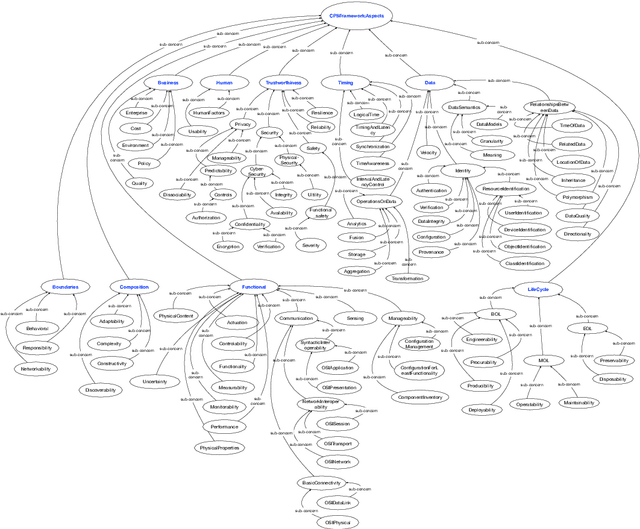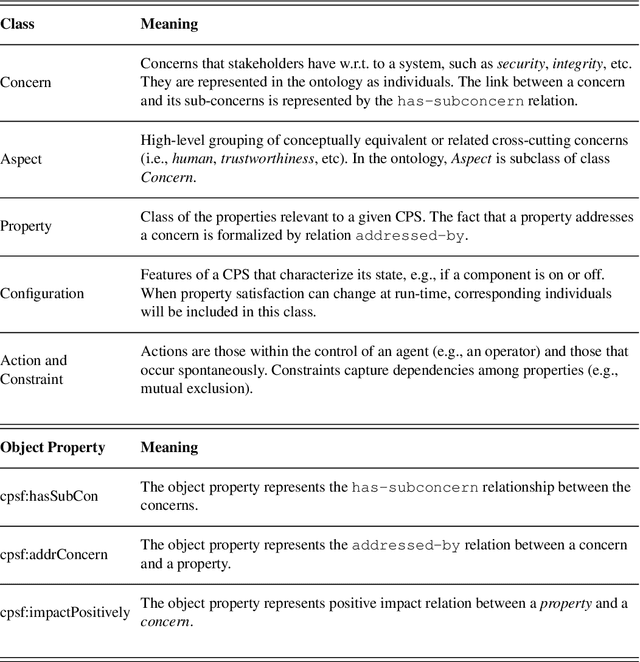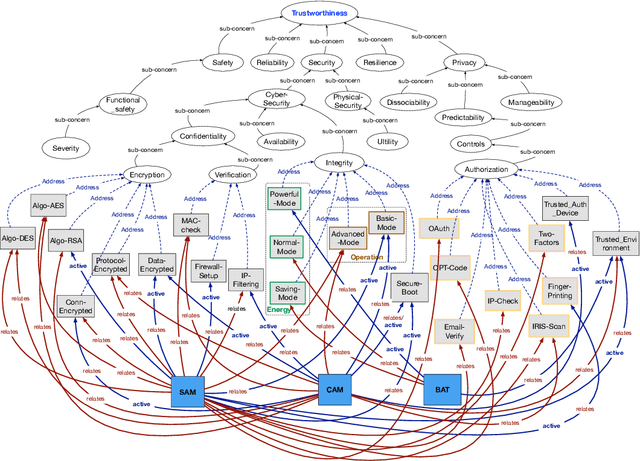Kathleen Campbell Garwood
Specifying and Reasoning about CPS through the Lens of the NIST CPS Framework
Jan 14, 2022



Abstract:This paper introduces a formal definition of a Cyber-Physical System (CPS) in the spirit of the CPS Framework proposed by the National Institute of Standards and Technology (NIST). It shows that using this definition, various problems related to concerns in a CPS can be precisely formalized and implemented using Answer Set Programming (ASP). These include problems related to the dependency or conflicts between concerns, how to mitigate an issue, and what the most suitable mitigation strategy for a given issue would be. It then shows how ASP can be used to develop an implementation that addresses the aforementioned problems. The paper concludes with a discussion of the potentials of the proposed methodologies.
A comparison of cluster algorithms as applied to unsupervised surveys
Dec 13, 2018



Abstract:When considering answering important questions with data, unsupervised data offers extensive insight opportunity and unique challenges. This study considers student survey data with a specific goal of clustering students into like groups with underlying concept of identifying different poverty levels. Fuzzy logic is considered during the data cleaning and organizing phase helping to create a logical dependent variable for analysis comparison. Using multiple data reduction techniques, the survey was reduced and cleaned. Finally, multiple clustering techniques (k-means, k-modes, and hierarchical clustering) are applied and compared. Though each method has strengths, the goal was to identify which was most viable when applied to survey data and specifically when trying to identify the most impoverished students.
 Add to Chrome
Add to Chrome Add to Firefox
Add to Firefox Add to Edge
Add to Edge